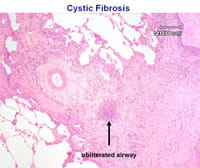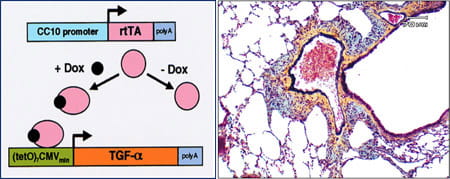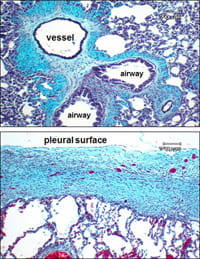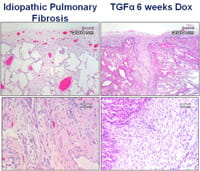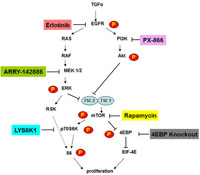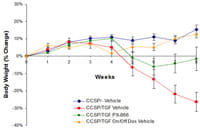Projects
Identification of specific cell signaling pathways which can be targeted alone or in combination to reverse progressive pulmonary fibrosis
This project focuses on identifying cell signaling pathways which are downstream of epidermal growth factor receptor activation which mediate fibroproliferation. The goal is to identify specific pathways which can be pharmacologically targeted that not only prevent lung fibrosis progression, but augment reversal of existing fibrosis.
Funding:
National Institutes of Health/National Heart, Lung, and Blood Institute including RO1 and P50 grants.
Collaborators:
George Thomas, PhD
University of Cincinnati
Department of Cancer and Cell Biology
Identification of the sources of fibroblasts and mesenchymal cells which comprise and produce pathologic lung fibrosis
The goal of this project is to determine the origin of cells which comprise lung fibrosis. A specific focus of this project is to determine the mechanisms and roles of cells originating from the bone marrow that are found in fibrotic lung lesions.
Funding:
American Heart Association - Grant to Dr. Madala
The role of TH-2 cytokines modulating inflammation and remodeling in the skin and lung
This project examines the role of interleukin-31(IL-31) in mediating skin and lung fibrosis and the relationship of IL-31 with other TH-2 cytokines and receptors including IL-4 and IL-13.
Funding:
Bristol-Myers Squibb
RO3 grant from the National Institutes of Health – Pending
Mechanisms of fibrosis resolution and irreversible remodeling
This project focuses on understanding the biology of how lung fibrosis resolves and the mechanisms whereby lung fibrosis becomes an irreversible scar.
Mechanisms of secondary pulmonary hypertension associated with pulmonary fibrosis
Pulmonary hypertension is a significant co-morbid factor in patients with pulmonary fibrosis. This project examines the mechanism whereby fibrotic lung tissue leads to pulmonary hypertension and explores pharmacologic and genetic mechanisms to reduce pulmonary hypertension in the presence of persistent fibrosis.
Research Project Images
